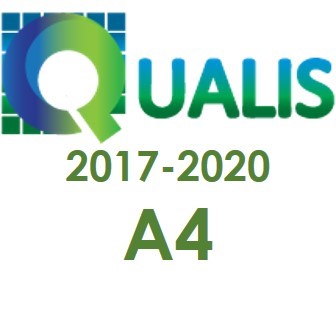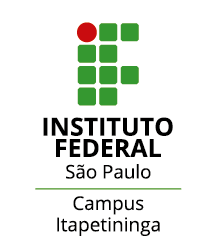Autoetnografia, ciências sociais e formação crítica
uma revisão da produção científica da educação física
Palavras-chave:
Autoetnografia. Educação Física. Formação Crítica. Revisão Integrativa.Resumo
Esta pesquisa discute particularidades da autoetnografia e sua relação com a formação do autoetnógrafo, que é autor e sujeito de pesquisa. Foi elaborada a partir de uma revisão da produção acadêmica de cunho social da Educação Física realizada em 2017. Junto à plataforma virtual de 25 periódicos selecionados, com qualificações A2, B1 e B2 na área de conhecimento da Educação Física, foram encontrados somente cinco estudos sobre a autoetnografia, cuja leitura permitiu apontar três pontos de discussão: autoetnografia e conhecimento científico; texto autoetnográfico; e formação crítica do autoetnógrafo. A análise sustenta-se na
literatura estrangeira das autoetnografias e, de forma conclusiva, permite compreender que a autoetnografia emerge nas ciências sociais como aporte teórico-metodológico de investigação sustentado nas experiências culturais do pesquisador. Contrapondo modelos positivistas, amparados na neutralidade científica, o autoetnógrafo elabora a pesquisa a partir de situações vividas, sentimentos e análises reflexivas, pautados no problema de investigação, marco teórico e rigor metodológico. Experiência, subjetividade e reflexividade confirmam o protagonismo do autoetnógrafo e mobilizam processos de conscientização – características que entendemos como processo de formação crítica do pesquisador ao longo da própria investigação autoetnográfica.
Downloads
Referências
BOSSLE, F. O “eu do nós”: o professor de Educação Física e a construção do trabalho coletivo na Rede Municipal de Ensino de Porto Alegre. Porto Alegre, 2008. Tese (Doutorado), Programa de Pós-Graduação em Ciências do Movimento Humano, Escola de Educação Física, Universidade Federal do Rio Grande do Sul, 2008.
BOSSLE, F.; MOLINA NETO, V. Leituras para (re)pensar o trabalho coletivo dos professores de Educação Física. Movimento, Porto Alegre, v. 15, n. 03, p. 89-107, jul./set. 2009a.
BOSSLE, F.; MOLINA NETO, V. No “Olho do Furacão”: uma autoetnografia em uma escola da rede municipal de ensino de Porto Alegre. Revista Brasileira de Ciências do Esporte, Campinas, v. 31, n. 1, p. 131-146, set. 2009b.
BOSSLE, F.; MOLINA NETO, V. Autoetnografia: mais uma opção metodológica para alguns problemas no âmbito da Educação Física. In: MOLINA NETO, V.; BOSSLE, F. (Orgs.). O ofício de ensinar e pesquisar na Educação Física escolar. Porto Alegre: Sulina, 2010, p. 207-238.
BOSSLE, F.; MOLINA NETO, V.; WITTIZORECKI, E. S. Trabalho docente coletivo na Educação Física escolar. Pensar a Prática, Goiânia, v. 16, n. 2, p. 401-415, abr./jun. 2013.
BOSSLE, F.; BOSSLE, C. B.; ROCHA, L. O.; CRUZ, L. L. Autoetnografia: modelo contra-hegemônico para a produção de conhecimento na Pós-Graduação em Educação Física no Brasil. VI Fórum de Pós-Graduação do CBCE e III Fórum de Pesquisadores das Subáreas Sociocultural e Pedagógica da Educação Física – 2016. Disponível em: http://congressos.cbce.org.br/index.php/6FPGCBCE/6Forum/paper/viewFile/8071/4097. Acesso em: 20 fev. 2017.
BROOME, M. E. Integrative literature reviews for the development of concepts. In: RODGERS, B. L., KNAFL, K. A. (Editors). Concept development in nursing: foundations, techniques and applications. Philadelphia (USA): W.B Saunders Company, 2000. p. 231-250.
CHANG, H. Autoethnography as method. Walnut Creek, CA: Left Coast Press, 2008. ISBN: 978-1598741230.
COSCRATO, G.; PINA J. C.; MELLO D. F. Utilização de atividades lúdicas na educação em saúde: uma revisão integrativa da literatura. Acta Paul Enferm, v. 23, n. 2, p. 257-263, 2010. Disponível em: http://www.scielo.br/pdf/ape/v23n2/17.pdf. Acesso em: 15 nov. 2016.
ELLIS, C.; ADAMS, T. E.; BOCHNER, A. P. Autoethnography: An Overview. Forum: Qualitative Social Research, [S.l.], v. 12, n. 1, p. 1-18, nov. 2010. ISSN 1438-5627. Disponível em: http://dx.doi.org/10.17169/fqs-12.1.1589. Acesso em: 17 fev. 2018.
FERNANDES, L.; BARBOSA, R. A construção social dos corpos periféricos. Saúde e Sociedade, São Paulo, v. 25, n. 1, p. 70-82, 2016.
FREIRE, P. Conscientização: teoria e prática da libertação: uma introdução ao pensamento de Paulo Freire. 3. ed. São Paulo: Centauro, 2008.
HOLT, N. L. Representation, legitimation, and autoethnography: an autoethnographic Writing Story. International Journal of Qualitative Methods, v. 2, n. 1, p. 1-22, 2003. Disponível em https://sites.ualberta.ca/~iiqm/backissues/2_1/pdf/holt.pdf. Acesso em 10 jan. 2016.
JENSEN-HART, S; WILLIAMS, D. J. Blending voices: autoethnography as a vehicle for critical reflection in social work. Journal of Teaching in Social Work, v. 30, n. 4, p. 450-467, 2010. Disponível em: http://dx.doi.org/10.1080/08841233.2010.515911. Acesso em: 06 jan. 2016.
JONES, S. H.; ADAMS, T. E.; ELLIS, C. Introduction: Coming to Know Autoethnography as More Than a Method. In: ______. Handbook of Autoethnography. Walnut Creek/CA/USA: Left Coast Press, 2015, p.10-12.
MARCUS, G. Ethnography Through Thick and Thin. Princeton: University Press, 1998.
MARTOS-GARCÍA, D.; DEVÍS-DEVÍS, J. “Ver, oír, callar y… aburrirse” en el trabajo de campo de una prisión: un relato autoetnográfico. Movimento, Porto Alegre, v. 23, n. 1, p. 53-66, jan./mar. 2017.
MENDES, K. D. S.; SILVEIRA, R. C. C. P.; GALVÃO, C. M. Revisão integrativa: método de pesquisa para a incorporação de evidências na saúde e na enfermagem. Texto contexto – enferm., Florianópolis, v. 17, n. 4, p. 758-764, out./dez. 2008. Disponível em: http://dx.doi.org/10.1590/S0104-07072008000400018. Acesso em: 15 nov. 2016.
PEIRANO, M. A Favor da Etnografia. Rio de Janeiro: Relumé-Dumará, 1995.
PEIRANO, M. Etnografia não é método. Horizontes Antropológicos, Porto Alegre, a. 20, n. 42, p. 377-391, 2014.
REED-DANAHAY, D. Auto/Ethnography: rewriting the self and the social. Oxford: Berg. 1997.
ROMAN, A. R.; FRIEDLANDER, M. R. Revisão integrativa de pesquisa aplicada à enfermagem. Cogitare Enferm, v. 3, n. 2, p. 109-112, 1998.
SPARKES, A. C. The fatal flaw: A narrative of the fragile body-self. Qualitative Inquiry, v. 2, n. 4, p. 463-494, dez. 1996. Disponível em: http://journals.sagepub.com/doi/abs/10.1177/107780049600200405. Acesso em: 07 jan. 2016.
SPARKES, A. C. Autoethnography and narratives of self: Reflections on criteria in action. Sociology of Sport Journal, 17, p. 21–43, 2000.
STARR, L. J. The use of autoethnography in educational research: locating who we are in what we do. Canadian Journal for New Scholars in Education, v. 3, n. 1, p. 01-09, jun. 2010. Disponível em https://journalhosting.ucalgary.ca/index.php/cjnse/article/view/30477. Acesso em: 05 dez. 2017.
SPRY, T. Performing autoethnography: An embodied methodological praxis. Qualitative Inquiry: Sage Publications, v. 7, n. 6, p. 706-732, dez. 2001. Disponível em: https://www.nyu.edu/classes/bkg/methods/spry.pdf. Acesso em: 06 jan. 2016.
VERSIANI, D. B. Autoetnografias: conceitos alternativos em construção. Rio de Janeiro: 7Letras, 2005.
Downloads
Publicado
Como Citar
Edição
Seção
Licença
Copyright (c) 2018 Revista Internacional de Formação de Professores

Este trabalho está licenciado sob uma licença Creative Commons Attribution-NonCommercial-NoDerivatives 4.0 International License.



 Este trabalho está licenciado sob uma licença
Este trabalho está licenciado sob uma licença 